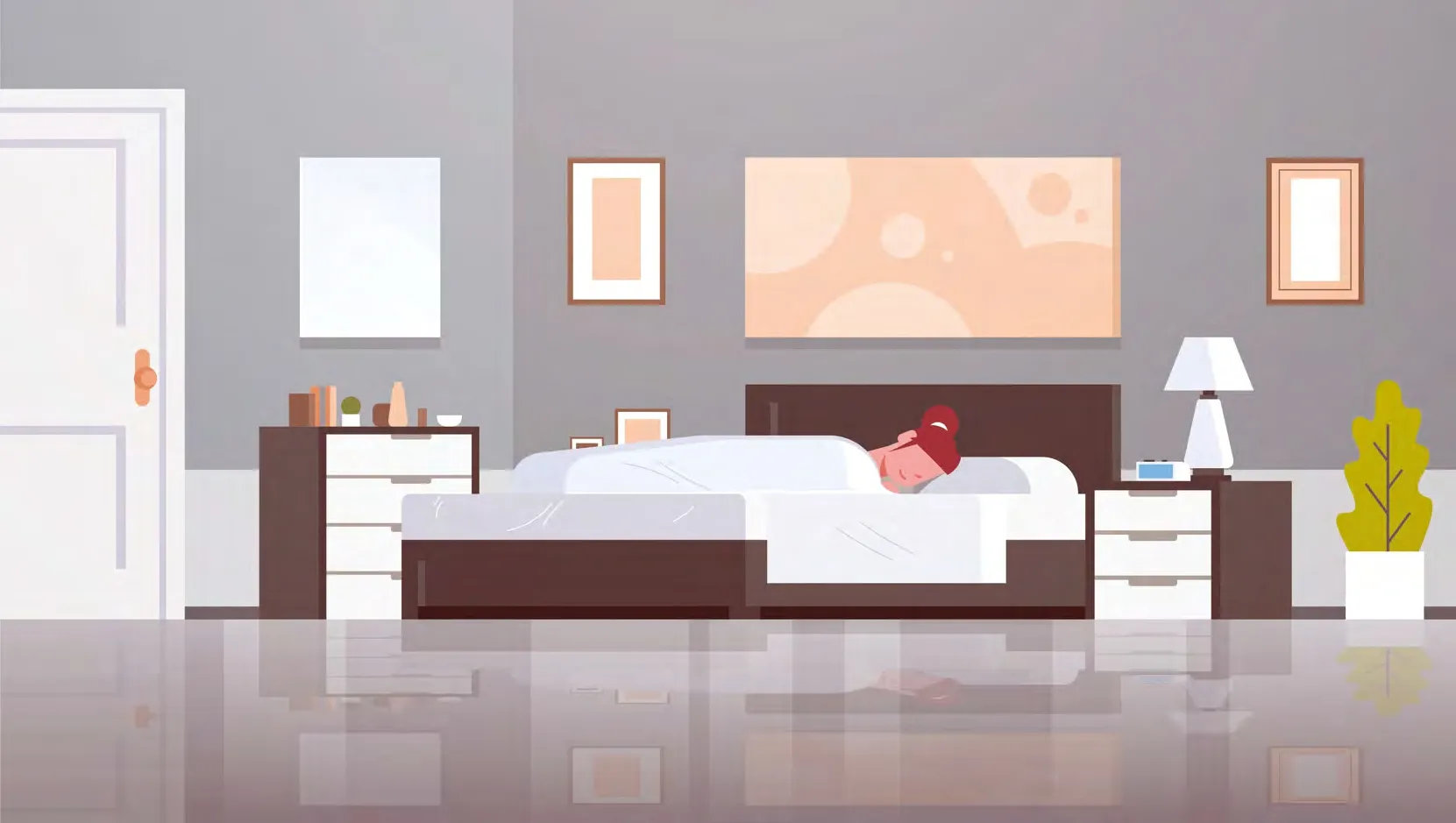The Philosophy of Living a Simple Life
2019-03-01ByMaoLi
By Mao Li
A friend of mine living in New York with his Japanese wife invited me to his home for dinner. I headed for his deluxe apartment after buying a bottle of wine at a nearby wine shop. On the way, I recalled the moment many years ago when he expressed his delight at his first meeting with his wife, “How nice Japanese girls are! She even cooked a takeout meal for me.”
After I rang the doorbell, the couple appeared and welcomed me in. I was surprised at what I saw in the living room, which covered an area of around 50 square meters. A set of brownish sofa and a small coffee table were the only furniture. There was almost nothing set on the table, nor any throw pillows on the sofa. A cat bowl stood in the corner.
I said, in curiosity, “There are very few things in your home.” He responded with a smile, “It’s my wife’s lifestyle. Or house cleaning would be too hard for her…”
Truly, I was convinced at that moment.
Here comes the difference between Minimalism and “Disposalism.” The latter means disposal of household items one after another, while the former means fewer possessions in the first place.
A simple way of life can be defined as follows: six suits of clothes for the whole year’s wear; a bottle of cleanser and a towel in the bathroom; a set of bowls and plates and a coffee pot for each person in the kitchen; a cellphone and computer connected to the internet.
A picture of Steve Jobs, a minimalist, shows that he sits on the living-room floor by himself. It goes, “I was single then so what I needed was just a cup of tea, a lamp, and a stereo. As you know, those were all my possessions.”
I had never admired this lifestyle before because I owned almost nothing then. In my mind, a good life was based on a comfortable sofa, a floor lamp, a coffee table with a cup of hot tea, and a large built-in bookcase covering the entire wall.
After years of hard work, I have what I desired. Besides this, I have a cloakroom where I cram my clothes—enough for ten years’ use.
Eventually, my dream-lifestyle was a reality; however, I have found my happiest times are when I go on my occasional vacations with a small case—which offers a free and casual lifestyle that I prefer. In my suitcase, I pack a pair of sports shoes, sneakers, and flip-flops, two long pants, three jackets, and a couple of books. All these things make good partners for a one-week travel session. My hotel rooms are clean and well organized, without clutter on the tables or jumbled clothes on the f loor as in my house.
(1)在偏好表达上 文献[9]研究了得分偏好信息下的双边匹配问题,文献[12]考虑了语言偏好信息下的双边匹配问题,二者均未考虑匹配主体的心理行为因素。本文针对具有得分和语言两种形式偏好信息的双边匹配问题,考虑了匹配主体的心理行为因素,提出一种基于前景理论的双边匹配方法。与文献[9,12]的方法相比,一方面本文将基于单一形式偏好信息的双边匹配模型拓展到多种形式情形,发展和完善了双边匹配理论;另一方面在实际匹配决策中,匹配主体是有限理性的,即匹配主体并非总是追求效用最大化,而表现为参照依赖和损失规避等,本文通过引入前景理论来描述匹配主体的心理行为,更加符合实际匹配情况。
People at home collect things—and their possessions grow more and more as time goes by. By contrast, travelers would disown desires during trips as they save troubles by taking fewer things along.
If I get a new dress for myself during the trip, I will get rid of an old one. A female’s constant consumption is actually all about satisfying their imagination.
Many friends of mine would regularly make a wish list of what to purchase item by item—a temptation to people around them: you should get a coat like this and a lipstick like that.
Once your need is satisfied, however, you will realize your spiritual emptiness is an abyss which cannot be filled with purchases. Endless buying will only prove that you are never happy with yourself, and you’ll always want to make more changes.
In fact, money should be used on exercise and mental nurturing.
A minimalist must gather enough inner power to resist the temptations from outside. A mere thought of the happiness of minimalism can seize me instantly like a storm, driving away all my desires.
(From Life Daily. Translation: Wang Wen)

简单是一种境界
文/毛利
久居纽约的朋友娶了日本太太,盛情邀请我去他家吃饭。我在附近的酒行随手拎了瓶酒,朝那栋豪华公寓走去。回想起多年前,朋友初识他夫人时,两眼放光地说:日本女人竟然这么会照顾人,她还给我做了便当。
按响门铃后,夫妇俩笑脸盈盈地在门口迎接。我进门,吓了一跳:四五十平方米的客厅里,竟然只有一套灰色沙发和一个茶几。茶几上没有摆放任何东西,沙发上甚至没有靠垫。地上放着一个猫粮碗。
开始我以为朋友是新搬过来的,还没来得及添置。后来他告诉我,已经住了一年多。我一再环视,发现他家连一点点装修的意图都没有。美国人喜欢在墙上挂画、挂照片,他家的墙上却空无一物。朋友拉我去阳台,说:“这里可以看帝国大厦。”比起辉煌的帝国大厦,我更惊讶的是,眼里满是纽约的繁华,脚下却只有一个空荡荡的阳台。
我忍不住说:“你家东西好少。”朋友笑了,说:“太太不让买,她说收拾起来太麻烦。”
不得不承认,我瞬间被折服了。
极简主义和断舍离还不太一样。断舍离是要让人一件一件扔掉原来的东西,极简主义说的是,你一开始就不该拥有这么多。
简单生活这样定义简单:6套衣裤穿一年;浴室,一罐洗洁精、一条毛巾;厨房,一人份碗盘、咖啡壶;只要有手机、电脑,就能与世界连接。
极简主义爱好者乔布斯有一张照片,一人坐在空荡荡的客厅地板上。他这么解释:我当时单身,所需的只是一杯茶、一盏灯、一套音响,如你所知,这就是我的全部身家。
要是在以前,我可不羡慕这样的生活。那时候,我一无所有,总觉得美好的人生应该拥有一张顶舒服的沙发、一盏落地灯、放着一杯茶的茶几和整面墙的书柜。
好了,岁月荏苒,这些东西我都有了,除此之外,我还有个衣帽间,里面满满当当塞着10年都穿不完的衣服。
终于进入理想生活后,我最开心的日子,居然是提着一只小行李箱,偶尔去别的地方度假。我太喜欢不需要挑选的生活了。箱子里通常只有一双球鞋、一双单鞋、一双人字拖、两条裤子、三件上衣,再加上两三本书,这些足够我清爽地生活一个星期。最棒的是,酒店房间干净整洁,没有我家书桌上乱摊的杂物,地板上也没有东一件西一件的衣服。
家里的东西是会繁殖的,它们只会越来越多。而在旅途中,人常常因为顾虑,不能带得太多,也就放弃那么多的渴望。
如果旅行时我添置一件衣服,就必须扔掉带去的另一件衣服。女人在不停买买买的时候,其实是在购买自己的想象。
我的不少朋友会定期列出欲望清单,把想买的东西一样样罗列出来,诱惑所有人:你该拥有这样的大衣,该拥有那样的口红。
可你买回来就知道,空虚这东西是实打实的,不是几个物件就可以填满。无尽的购买只证明一件事,我对外在的自己永远不满意,永远想多一些改变。
实际上,这些钱,早就应该花在真正的身体锻炼和真正的精神补给上。
一个奉行极简主义的人,一定有着别人不能摧毁的强大内核。光是想到这一点,它就迅速征服了我,犹如一股强台风,吹走所有欲望。

